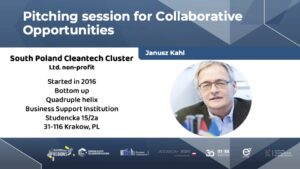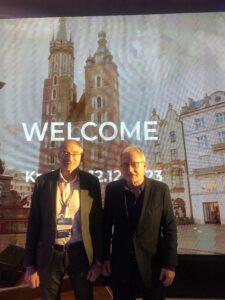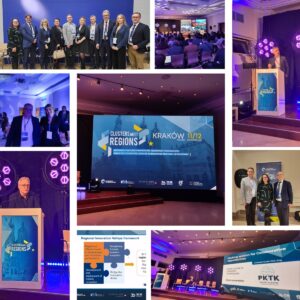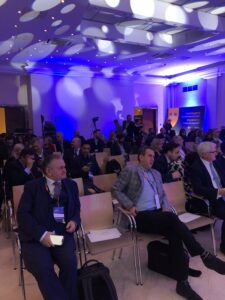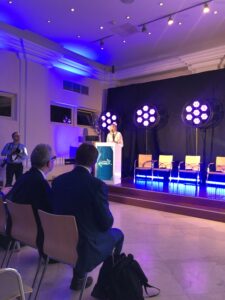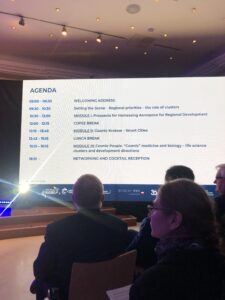“Clusters Meet Regions” AGORADA+ in Krakow
On 11-12.12.2023, SPCleantech participated in EURADA’s main annual event, a conference organized in Krakow by member of SPCleantech, Malopolska Regional Development Agency (MARR) and the European Association of Development Agencies (EURADA). The conference “Clusters Meet Regions” AGORADA+ was organized on behalf of the European Commission.
During the conference CEO in SPCleantech, Janusz Kahl presented the cluster and close cooperation with Ukrainian clusters was introduced.
CmR_Krakow_PPT_template_pitchers – presentation of SPCleantech during the conference.
The European Cluster Collaboration Platform, on behalf of the European Commission, in partnership with the Malopolska Regional Development Agency (MARR) and the European Association of Development Agencies (EURADA), jointly organized the Clusters meet Regions workshop to explore how regional development agencies, clusters and other actors could foster stronger collaboration in the implementation of regional and national economic development policies. The specific aim of the event is to foster wider uptake and development of the aerospace technologies in regions, smart city concepts, life sciences clusters and increased use of funding opportunities in Poland.
THE CLUSTERS MEET REGIONS SERIES
EU regions need to be able to compete with other more advanced and emerging economies in the fast changing economic and social environment, in particular in the post-Covid-19 recovery period. Location matters particularly for clusters. They develop more easily in urban and regional ecosystems with a favourable administrative and regulatory environment and access to skilled labour, markets, financial and business support services.
What really matters is the involvement of clusters in regional economic governance, in policy design and implementation at regional level.
Regional authorities need to know their clusters and understand how they can shape, improve and effectively help in the design and the implementation of regional development policies. On the other hand, cluster organisations and their members should take actions and implement projects that are relevant for the economic development of their local communities. They should engage in collaboration with other European clusters in the same or related economic activities and thus complement regional assets and reinforce capacities to lead green transition, accelerate digital transition and build resilience.
13 regional workshops have already been organised in the EU regions, which expressed their interest to host the events in 2022-23 as part of the “Clusters meet Regions” cycle.
These workshops brought together clusters and policymakers of the EU, national, regional and local level to learn from each other on how to better use clusters to strengthen industrial ecosystems, serve national/regional economic development and liaise with other regions with similar transition challenges.
Focusing on the aerospace technologies, smart cities, life sciences, and financing opportunities, the event in Kraków is the 14th of the series and aims to facilitate the implementation of good practices where clusters play an active role in regional economies and are drivers for economic transition, and to create and promote collaborations between clusters and regional stakeholders for the industrial development of the regions.
Target audience
The event aimed to bring together around 100 representatives of regional development agencies, part of or outside EURADA’s network, cluster organisations, national public authorities, companies, and business support organisations from EU Member States and regions. Participation from a wide range of economic development actors is expected, including financial intermediaries, clusters, innovation hubs, industrial associations, investors, business angels, crowdfunding platforms, and others.



